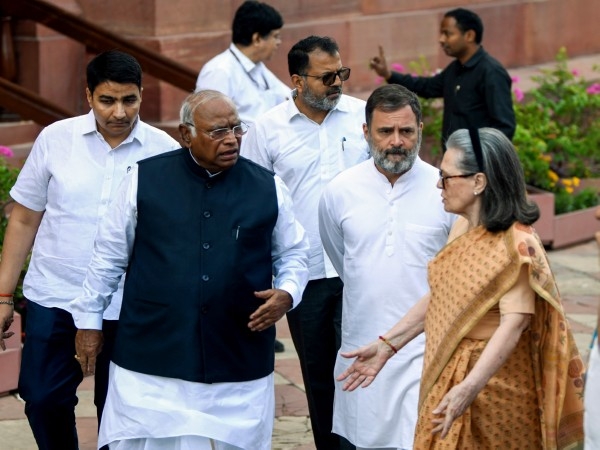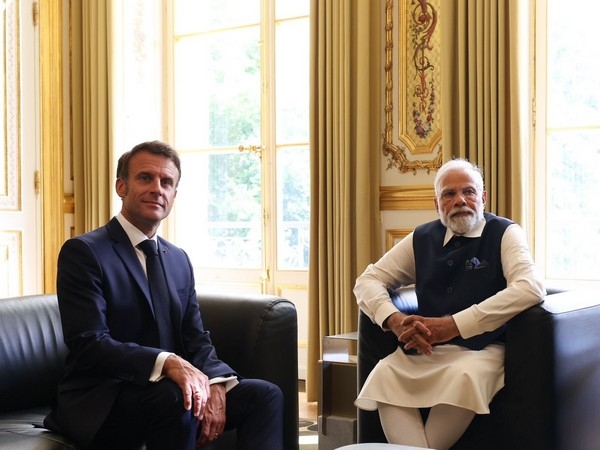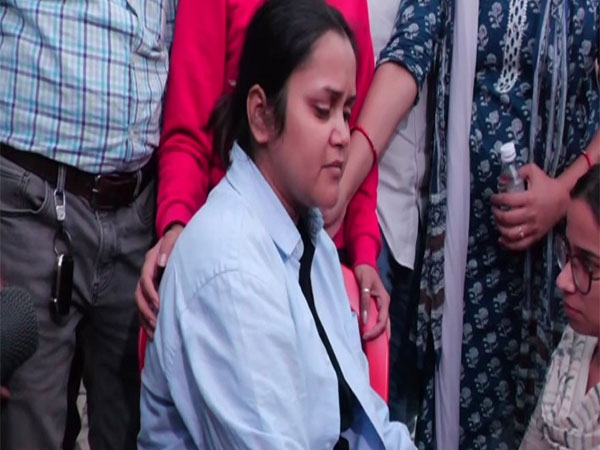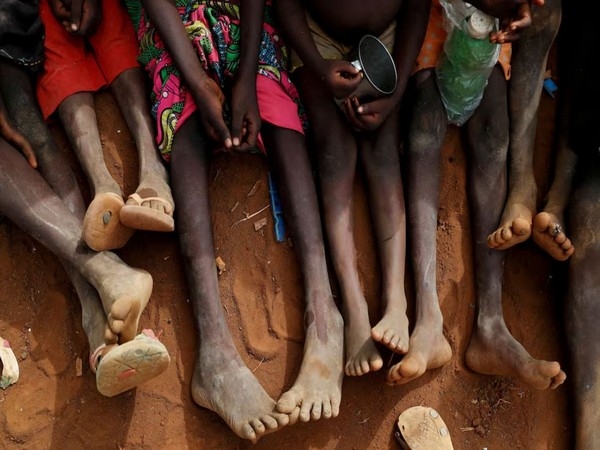All eyes on the US: here's why Super Tuesday is such a big deal

As the US wakes up to Super Tuesday - March 1 - it's curtains up on one of the most significant day on the US presidential election calendar.
It's a day when13 different states and territories will be voting to select their preferred presidential candidates.
Both Republican and Democratic party voters can significantly swing the race one way or the other by the time this night is over. The sheer number of delegates on offer makes this a do-or-die date for most candidates neck deep in the race.
Just what's going on today? Our handy explainer will help bring you up to speed with all the buzz about Super Tuesday.
- One of the biggest days on the US election calendar
- It's on March 1
A dozen states and one territory are holding their primaries on this day
- Super Tuesday is what this day has unofficially come to be called - basically it's the (Tues)day during the presidential primary elections on which the largest number of states hold their nominating contests
The states holding their primaries today are - Alabama, Alaska Republican Caucus, American Samoa, Arkansas, Colorado, Georgia, Massachusetts, Minnesota, Oklahoma, Tennessee, Texas, Vermont, Virginia and Democrats Abroad
- The concept originated in 1988
- One of the reasons for multiple states to hold their primaries together was to consolidate voters and the organisation of campaigns
Another reason is because the Southern Democrats wanted to highlight the electoral significance of their region. They would do this by clubbing a group of states together on a single day of voting
- In recent times, multiple candidates - both Barack Obama and Hillary Clinton in 2008 and Mitt Romney in 2012 - have declared their own victories and the race over post Super Tuesday.
In India, Super Tuesday will actually fall Wednesday early morning, with the first polls closing 5.30 am Indian time. Here's the state-wise schedule (all in US Eastern Standard Time):
- 7 pm: Alabama, Georgia, Vermont and Virginia
- 8 pm: Massachusetts, Oklahoma and Tennessee
- 8:30 pm: Arkansas
- 8 pm: Minnesota's caucus begins at 8.
- 12 am: Alaska's caucuses close around midnight
- 595 Republican delegates
865 Democratic delegates
- Texas: It has the largest number of delegates (115 for Republicans, 252 for Democrats). It is also the home state of Senator Ted Cruz
- Massachusetts: It is an open primary. That means that anyone registered can vote in the Republican race, regardless of which party they are affiliated to. The state's largest newspaper, The Boston Globe, has urged Democrats to vote for John Kasich in a bid to derail Trump's momentum.
Republicans (a total of 1,237 delegates are needed to win the party nomination):
- Donald Trump: 82 delegates
- Ted Cruz: 17 delegates
Marco Rubio: 16 delegates
- John Kasich: 6 delegates
Ben Carson: 4 delegates
Democrats (2,383 delegates to win):
- Hillary Clinton: 546 delegates
- Bernie Sanders: 87 delegates
- On the Republican side, Donald Trump is favoured to win each and every state except Texas.
- Trump has a double-digit lead in Alabama (15 points), Georgia (14 points), Massachusetts (28 points), Vermont (15 points) and Virginia (15 points). Trump's also the favorite in Oklahoma (7 points).
The only state where Trump isn't favoured to win is Texas. There, Ted Cruz has a 9 point lead going into Super Tuesday.
- The battle for second place will be split in many states between Marco Rubio and Ted Cruz.
If either emerges as a decisive runner-up, they could pressurise the other to drop out to give the Republican Party a better chance at stopping Trump.
- On the Democratic side, Hillary Clinton has massive leads in many states and is expected to win in all but two states - Sanders' home state of Vermont and in the caucuses of Minnesota.
Clinton leads in Alabama (38 points), Arkansas (29 points), Georgia (35 points), Tennessee (26 points), Texas (28 points), and Virginia (20 points)
READ MORE: US Elections 2016: Super Tuesday schedule and candidates likely to make the cut
- On the Democratic race, neither Clinton nor Sanders are likely to drop out and hand victory to the other candidate.
- On the Republican side, Ohio Gov. John Kasich and retired neurosurgeon Ben Carson could face serious losses and be pressured by party officials to give up hope and instead help Cruz and Rubio in the fight against Trump.
Trump's rise is a matter of serious concern within his party. But thar doesn't mean they see his nomination as a done deal. According to Politico, "No matter what happens on Tuesday, Cruz and Rubio's allies point out, Trump will be nowhere close to securing the 1,237 delegates needed to secure the GOP nomination. The 595 delegates up for grabs will be distributed proportionately, meaning that Cruz and Rubio are expected to rack up a substantial number even if they do not succeed in winning many states. Going into Super Tuesday, Trump has won 82 of the 133 delegates that have been awarded so far."
Read more: Trump closes in on Super Tuesday romp
- On Saturday, 5 March, both Democrats and Republicans will vote in the Kansas caucuses and Louisiana primaries.
- Republicans will also vote in the Kentucky Caucus and Maine Caucus
Democrats will also be voting in the Nebraska Caucus
- A day later, the Democrats will be voting in the Nebraska Caucus
- The next decisive day in the primary calendar is on 15 March
- Republicans vote in Florida, Illinois, Missouri, Northern Mariana Islands Republican Caucus, North Carolina and Ohio with a total delegate offering of 367.
Democrats vote in Florida, Illinois, Missouri, North Carolina and Ohio with a total delegate offering of 792
Watch this space for how Super Tuesday plays out - and what the implications of the results are!


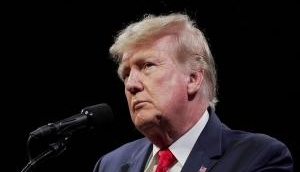
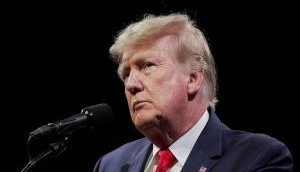


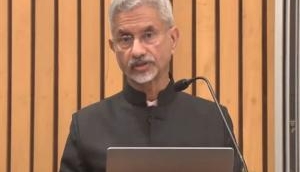
![BJP's Kapil Mishra recreates Shankar Mahadevan’s ‘Breathless’ song to highlight Delhi pollution [WATCH] BJP's Kapil Mishra recreates Shankar Mahadevan’s ‘Breathless’ song to highlight Delhi pollution [WATCH]](https://images.catchnews.com/upload/2022/11/03/kapil-mishra_240884_300x172.png)

![Anupam Kher shares pictures of his toned body on 67th birthday [MUST SEE] Anupam Kher shares pictures of his toned body on 67th birthday [MUST SEE]](https://images.catchnews.com/upload/2022/03/07/Anupam_kher_231145_300x172.jpg)


